第87章 Part the Second (45)
23.It is related that in the canton of Berne, in Switzerland, it has been customary, from time immemorial, to keep a bear at the public expense, and the people had been taught to believe that if they had not a bear they should all be undone.It happened some years ago that the bear, then in being, was taken sick, and died too suddenly to have his place immediately supplied with another.During this interregnum the people discovered that the corn grew, and the vintage flourished, and the sun and moon continued to rise and set, and everything went on the same as before, and taking courage from these circumstances, they resolved not to keep any more bears; for, said they, "a bear is a very voracious expensive animal, and we were obliged to pull out his claws, lest he should hurt the citizens." The story of the bear of Berne was related in some of the French newspapers, at the time of the flight of Louis XVI., and the application of it to monarchy could not be mistaken in France; but it seems that the aristocracy of Berne applied it to themselves, and have since prohibited the reading of French newspapers.
24.It is scarcely possible to touch on any subject, that will not suggest an allusion to some corruption in governments.The simile of "fortifications," unfortunately involves with it a circumstance, which is directly in point with the matter above alluded to.
Among the numerous instances of abuse which have been acted or protected by governments, ancient or modern, there is not a greater than that of quartering a man and his heirs upon the public, to be maintained at its expense.
Humanity dictates a provision for the poor; but by what right, moral or political, does any government assume to say, that the person called the Duke of Richmond, shall be maintained by the public?
Yet, if common report is true, not a beggar in London can purchase his wretched pittance of coal, without paying towards the civil list of the Duke of Richmond.Were the whole produce of this imposition but a shilling a year, the iniquitous principle would be still the same; but when it amounts, as it is said to do, to no less than twenty thousand pounds per annum, the enormity is too serious to be permitted to remain.This is one of the effects of monarchy and aristocracy.
In stating this case I am led by no personal dislike.Though I think it mean in any man to live upon the public, the vice originates in the government; and so general is it become, that whether the parties are in the ministry or in the opposition, it makes no difference: they are sure of the guarantee of each other.
25.In America the increase of commerce is greater in proportion than in England.It is, at this time, at least one half more than at any period prior to the revolution.The greatest number of vessels cleared out of the port of Philadelphia, before the commencement of the war, was between eight and nine hundred.In the year 1788, the number was upwards of twelve hundred.As the State of Pennsylvania is estimated at an eighth part of the United States in population, the whole number of vessels must now be nearly ten thousand.
26.When I saw Mr.Pitt's mode of estimating the balance of trade, in one of his parliamentary speeches, he appeared to me to know nothing of the nature and interest of commerce; and no man has more wantonly tortured it than himself.During a period of peace it has been havocked with the calamities of war.Three times has it been thrown into stagnation, and the vessels unmanned by impressing, within less than four years of peace.
27.Rev.William Knowle, master of the grammar school of Thetford, in Norfolk.
28.Politics and self-interest have been so uniformly connected that the world, from being so often deceived, has a right to be suspicious of public characters, but with regard to myself I am perfectly easy on this head.I did not, at my first setting out in public life, nearly seventeen years ago, turn my thoughts to subjects of government from motives of interest, and my conduct from that moment to this proves the fact.I saw an opportunity in which I thought I could do some good, and I followed exactly what my heart dictated.I neither read books, nor studied other people's opinion.I thought for myself.The case was this:-During the suspension of the old governments in America, both prior to and at the breaking out of hostilities, I was struck with the order and decorum with which everything was conducted, and impressed with the idea that a little more than what society naturally performed was all the government that was necessary, and that monarchy and aristocracy were frauds and impositions upon mankind.On these principles I published the pamphlet Common Sense.
The success it met with was beyond anything since the invention of printing.I gave the copyright to every state in the Union, and the demand ran to not less than one hundred thousand copies.I continued the subject in the same manner, under the title of The Crisis, till the complete establishment of the Revolution.
After the declaration of independence Congress unanimously, and unknown to me, appointed me Secretary in the Foreign Department.This was agreeable to me, because it gave me the opportunity of seeing into the abilities of foreign courts, and their manner of doing business.But a misunderstanding arising between Congress and me, respecting one of their commissioners then in Europe, Mr.Silas Deane, I resigned the office, and declined at the same time the pecuniary offers made by the Ministers of France and Spain, M.Gerald and Don Juan Mirralles.